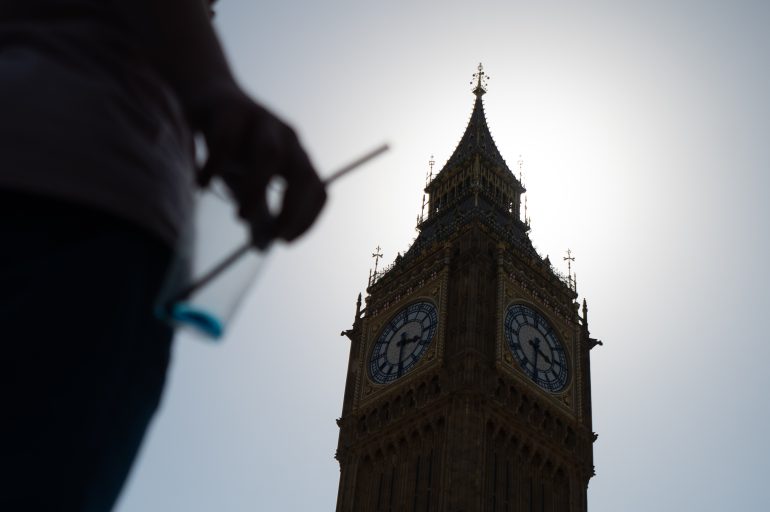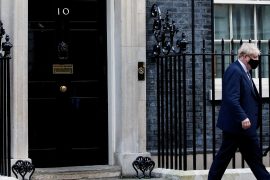Status: 07/20/2022 10:33 AM
The temperature in Great Britain has exceeded 40 degrees for the first time since the start of the weather records. This is causing trouble all over the country. However, climate protection currently plays a secondary role in the political debate.
Heat wave and its consequences are always in the forefront of the news. For example, the BBC reports: “Historic temperatures day and night”. Temperatures on Tuesday exceeded 40 degrees Celsius for the first time since records began in Great Britain. According to the Met Office, the eastern English county of Lincolnshire measured 40.3 degrees in the afternoon. The temperature at London’s Heathrow Airport and St James’s Park in the Government District was 40.2 degrees Celsius. At least the water is closer in the English coastal town of Blackpool.
One woman said that she threw water on her head several times. She keeps jumping in the sea to cool down. “It’s very, very hot. And that makes my breathing problems worse. It’s really difficult, especially in the city. It sounds crazy, but the air is hot too. There’s no cold air,” She says.
The effect of heat felt everywhere
Across the country, many people drown trying to cool off in the water. And the consequences of the heat can be felt in all sectors: there are disruptions to the health system and schools. Trains across the country are slowing down or being canceled altogether. Network Rail spokesman Kevin Groves defended the hope that trains would now return to normal. and looks to the future.
In every country, rail traffic is designed to withstand temperatures on a scale of about 45 degrees, Groves explains. So in Great Britain it is minus 10 to about plus 35 degrees. “Maybe we will have to make them differently in future, for summers which are hotter and for winters which are lighter. But it is still a bit early for such a big decision,” says a railway spokesperson.
major disaster declared
The London Fire Brigade also had to react and on Tuesday afternoon announced a major damage situation. There have been many fires in the London area. 16 firefighters are injured. In the face of such massive operations, Jonathan Smith of the London Fire Brigade appeals: “There is no doubt that this is an unprecedented heat wave. Our resources are deployed throughout the capital, this applies to all emergency services.” We will continue to answer all emergency calls. But in a real emergency call, please call us.” In the end there were over 1000 emergency calls. 16 firefighters were injured on Britain’s hottest day ever.
But not everyone wants to hear about the link between a heat wave and climate change, or thinks it is exaggerated. The right-wing conservative tabloid Daily Mail carried the headline: “Sunny Day – Snowflake Britons were in recession”. Snowflake is a controversial term that suggests being very sensitive. According to the newspaper, summer is not a new thing.
Climate protection conservatives don’t care
In cabinet, Prime Minister Boris Johnson is reminded of the British goal of climate neutrality by 2050. The Conservative Party had already set the Net Zero target as law under Theresa May. “Who can still doubt that we were the first major industrialized nation to commit to climate neutrality? It was the right thing to do,” Johnson says. What Great Britain achieved at the COP, the international climate conference in November, was “very important for the world”.
However, as TV debates show, action on climate change is not a priority for the candidates to succeed Johnson. And according to polls, the issue only plays a subordinate role for the conservative base, who ultimately decide on the prime minister. And so, these days, there is cause for concern that British climate policy may also see a regression.

Introvert. Proud beer specialist. Coffee geek. Typical thinker. Pop culture trailblazer. Music practitioner. Explorer.





